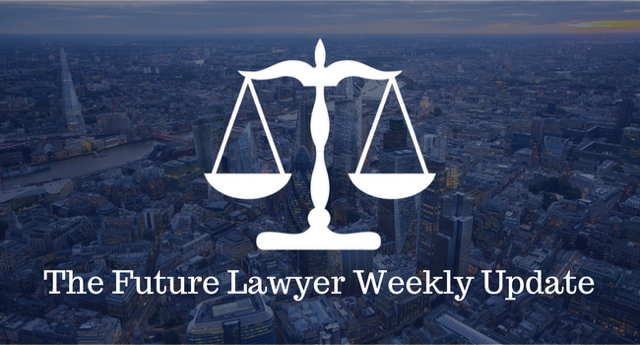
Automation of the Fashion Industry?
August 23, 2020
The Future Lawyer Weekly Update – w/c 17th August
August 24, 2020Article by Jasmine Cracknell
Last week, the Supreme Court ruled that a member of a charitable company can be directed by the court on how to exercise his or her powers, even if there has been no breach of fiduciary duty. This important decision also reaffirms the general principle that members of charitable companies are fiduciaries.
Background
This appeal relates to the Children’s Investment Fund Foundation (CIFF), a charitable company founded by Sir Christopher Hohn and Ms Jamie Cooper. After the pair’s marriage broke down, it was decided Ms Cooper would resign as a member of CIFF, but in return would receive from the company a grant of $360 million to invest in a charity she had set up called Big Win Philanthropy.
Under s.217 of the Companies Act 2006 and s.201 of the Charities Act 2011, a grant to a member who is leaving a charitable company must be agreed by the members of that company (through passing a resolution) and the Charity Commission, the charities regulator. The Charity Commission told the members to seek approval from the court that the transaction should go ahead.
As both Sir Christopher and Ms Cooper could not vote on the transaction due to a conflict of interest, the court considered whether Dr Lehtimäki, the third trustee, should vote in favour. The Chancellor of the High Court, Sir Geoffrey Vos, approved the grant as he believed it was in the charity’s best interests. He also held that, should Dr Lehtimäki not approve the resolution and go against the court’s direction, he would be in breach of his fiduciary duty as he would not be acting in the charity’s best interests (a fiduciary obligation is one where the fiduciary owes a duty of loyalty and acts in a position of trust and confidence, usually for a trustee or client.)
Dr Lehtimäki appealed to the Court of Appeal, believing he was not bound to vote for the resolution. The Court of Appeal found in his favour. The court held Mr Lehtimäki was a fiduciary but did not agree with the High Court that Dr Lehtimäki would be in breach of his duties. This is because the fiduciary’s duty is a subjective one, so if the member believes what he is doing is in the company’s interests, there is no breach. Whilst Dr Lehtimäki never indicated whether he would vote for or against the resolution, he maintained he would act in a way that HE thought would best promote CIFF’s charitable purposes, and therefore never gave any indication he would breach his duties. As no breach had therefore occurred, the court could not direct him to vote.
The Supreme Court’s Decision
Ms Cooper subsequently appealed to the Supreme Court, seeking a ruling that Dr Lehtimäki must vote for the resolution. She was represented primarily by Lord Pannick QC, instructed by Bates Wells. Dr Lehtimäki was represented by Macfarlanes LLP.
Lady Arden gave judgement for the court and ruled on three key points.
- Firstly, the Supreme Court agreed with the Court of Appeal that Dr Lehtimäki was a fiduciary when acting as a member of CIFF. This means that, when voting on a resolution, a member should only use their powers to further the interests of the charity. She noted the Charity Commission has also often described members as fiduciaries. However, whilst Lady Arden stressed that fiduciary duties do not apply in every situation, the granting of money to another charity; money which may have otherwise been used for charitable purposes, was a situation where the duty applied.
- Secondly, in overturning the Court of Appeal’s decision, the Supreme Court held the court could direct Dr Lehtimäki to vote for the resolution. The judges gave differing reasons for this. In broad agreement with the High Court’s decision, Lord Briggs, Lord Wilson and Lord Kitchin believed that if a court has directed a fiduciary to vote in a certain way, the fiduciary’s subjective judgement is no longer recognised. Therefore, going against the court’s direction would be a breach of duty. Should Dr Lehtimäki not vote in favour, he would therefore be in breach.
Lady Arden, however, was reluctant to depart from the general principle that a fiduciary’s duty should be subjective. She stressed the importance of the non-interventionist principle, which encourages fiduciaries to use their judgment to make decisions themselves. Whilst Lady Arden held there was therefore no breach of duty, she stated this case was an exceptional circumstance due to the ‘existential’ threat to CIFF if internal difficulties were not resolved. For this reason, the court could direct him to vote in favour. She said:
“Although the court must proceed with considerable caution…the court can exceptionally intervene irrespective of any breach of duty, alleged or found, by any fiduciary. That is because an impasse is threatened in the performance of the trust…” [137]
- Thirdly, the court ruled there was nothing in s.217 of the Companies Act to prevent the Court from directing a member to vote in a certain way. Whilst there is a principle in public law that courts should not be able to do this, the judges believed this did not apply to an internal matter of a charitable company.
The Supreme Court therefore unanimously allowed the appeal.




